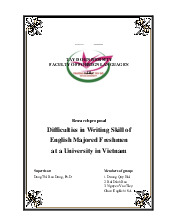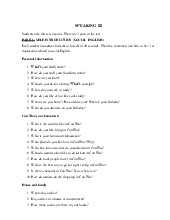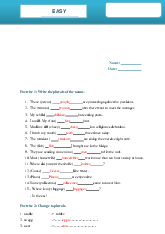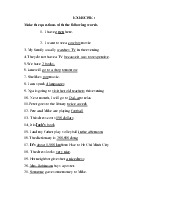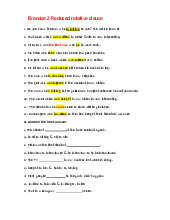

Preview text:
Topic 1: Technology should be prohibited to avoid cheating in
exams in universities, instead students should use papers in their exams.
To what extent do you agree/ disagree with the issue? Give
examples, explanation or any relevant evidence to illustrate your viewpoint.
The issue over whether technology should be banned from university tests to
avoid cheating is complicated and problematic. While concerns about academic
dishonesty are valid, an outright ban on technology may not be the best solution.
On one hand, banning the use of technology can significantly reduce cheating in
exam. Smartphones, smartwatches, and even calculators can be abused to
store data, access the internet, or interact with others during tests. By removing
these devices, universities can create a more controlled and fair environment.
Thus ensuring that students are fairly evaluated based on their knowledge and problem-solving skill.
Moreover, prohabiting technology can encourage students to study the material
more deeply in order to pass the exams. This can lead to better learning outcomes as
students review and reinforce their knowledge. For instance, by banning the use
of technologies, students have no choice but to actually study and use their knowledge and intelligent.
However, completely prohibiting technology in exams also has its drawbacks.
Technology is a integral part of many students field of study and future jobs,
denying students access to these tools during exams can hinder their capacity to
demonstrate their full understanding and practical skills. For example, not allowing
IT students to code on programs limit their efficiency and comprehension.
Furthermore, implementing a technology ban can be inefficient and unproductive.
Universities would need to invest more in monitoring and enforcement measures
to ensure integrity. This could drain resources away from more beneficial efforts
that improve learning and academic support.
In conclusion, while prohibiting technology in university exams may lessen
cheating, it is not a permanent solution. Instead of out-right banning it, strict
monitoring and regulation will help prepares students for a technologically advanced world.
